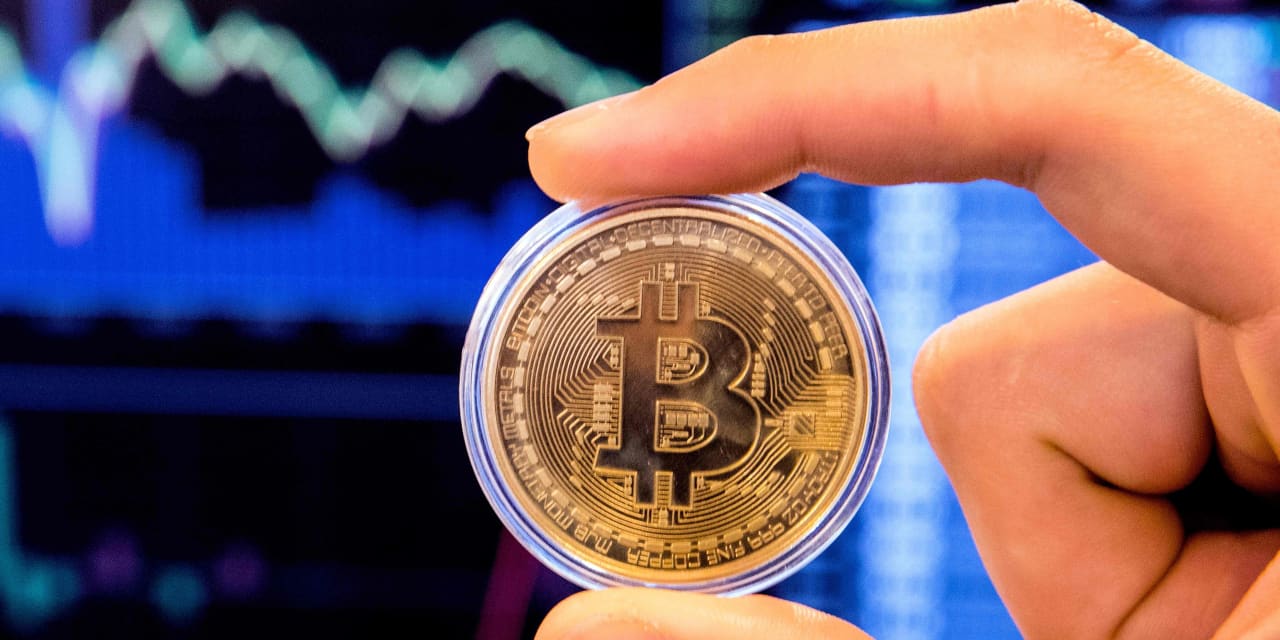Spot bitcoin exchange-traded funds are still practically brand new, but they’ve already changed the way crypto is traded, according to industry participants.
The U.S. Securities and Exchange Commission in January approved 10 spot bitcoin
BTCUSD,
ETFs, allowing investors to gain exposure to the biggest crypto by market cap without having to directly hold the digital coin.
However, while bitcoin can be traded 24 hours a day, seven days a week, ETFs investing in the crypto follow the trading hours of U.S. stock market, which run from 9:30 a.m. to 4 p.m. Eastern, Monday through Friday.
More liquidity
Bitcoin ETFs have brought more liquidity to the crypto market, according to Dessislava Aubert, analyst at crypto data provider Kaiko Research.
Bitcoin’s liquidity declined by over 60% after crypto exchange FTX collapsed in November 2022, and has been “very slow” to recover, Aubert said in a phone interview. However, the situation started to change after bitcoin ETFs were introduced, Aubert said.
Bitcoin’s 2% market depth, which measures the aggregated bids and asks on bitcoin order books, rose more than 20% since late November last year, and was up more than 30% year over year, according to data from Kaiko.
Meanwhile, the SEC in January approved a proposal by Grayscale Bitcoin Trust
GBTC,
the largest bitcoin fund, to convert from a closed-end fund to an ETF.
That move unlocked more liquidity in the bitcoin market, according to Doug Schwenk, chief executive at Digital Asset Research.
In a closed-end fund, shares are typically bought and sold by investors on the open market but aren’t purchased or redeemed by the issuer. That means the market price of the fund can deviate significantly from the value of the assets it holds. Grayscale’s discount to its net asset value disappeared after the approval of its conversion to an ETF.
Compared with closed-end funds, ETFs have a structure that allows certain financial institutions, known as authorized participants, to create and redeem shares, to keep the funds’ value aligned with that of the assets they hold. Investors can buy and sell ETFs like a stock.
Since GBTC was converted into an ETF, it has seen an outflow of $7.3 billion, leaving its asset under management at $22.8 billion as of last Friday, according to Dow Jones market data.
Increased U.S. concentration
Rising bitcoin liquidity has mostly been driven by U.S. platforms, Aubert said. The market share of bitcoin market depth on the U.S. exchanges has increased from below 40% in November to close to 50%, according to data from Kaiko.
Since the debut of spot bitcoin ETFs, bitcoin trading volume during U.S. trading hours has also risen, according to Austin Reid, global head of revenue and business at crypto brokerage firm FalconX.
In particular, the bitcoin trading volume between 3 p.m. and 4 p.m. Eastern surged, making bitcoin’s trading pattern more akin to stocks, Reid said. ETFs tend to see the highest trading volume before the stock market closes, as market makers create and redeem shares.
Prior to the arrival of bitcoin ETFs, the bitcoin trading volume between 3 and 4 p.m. accounted for roughly 5% of the total volume on U.S. crypto exchanges. Now, the number has gone up to 10% to 13%, Reid said in a call.
Weekday vs. weekend trading
The share of bitcoin traded on weekends has declined significantly over the past six years, falling from 24% in 2018 to 17% in 2023, according to data from Kaiko.
It was partly due to worsening market infrastructure after two crypto friendly banks, Silvergate Capital and Signature, collapsed in 2023, according to Aubert. It could also be attributable to rising institutional participation, Aubert said.
The trend was reinforced after bitcoin ETFs won approval. So far this year, only 13% of bitcoin transactions were executed over the weekend, according to Kaiko.
“The gap between weekends and weekday could deepen further as ETFs gain traction and change the market structure,” Kaiko analysts wrote in a Monday note.
New participants
Bitcoin ETFs are bringing a new set of participants into the crypto market, such as some wealth-management firms and individual investors that didn’t feel comfortable trading at the crypto exchanges, according to FalconX’s Reid.
However, Reid said he noticed the majority of institutions that were already actively trading crypto didn’t move their bitcoin holdings into ETFs. Such institutions include hedge funds, proprietary trading firms, venture funds, and asset managers, with most of their strategies built around a crypto market that doesn’t close.
“If you’re trading crypto and are active within the crypto space, and that’s kind of your core competency, the ETF may not be the best wrapper,” Reid said.
Less demand for bitcoin futures
Market participants are also seeing a rotation of demand from bitcoin futures to spot bitcoin, after ETFs investing directly in the crypto were approved, according to Digital Asset Research’s Schwenk.
“Professional investors in the past may be constrained by the need to invest in a security or a regulated product, and historically, such products were only limited to bitcoin futures in the U.S. But now they can access spot bitcoin ETFs, which are cheaper and easier to trade and there’s deeper liquidity available to them,” Schwenk said in a call.
Read the full article here




